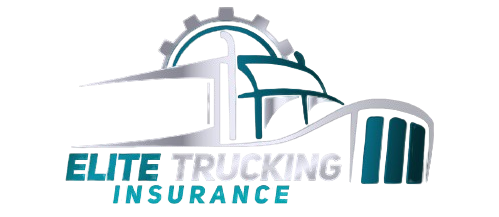Understanding Cargo Insurance
Cargo insurance is a specialized indemnity product specifically tailored to safeguard the cargo transported by trucks. It plays an indispensable role in mitigating financial risks that trucking companies face due to accidents, theft, or damage to cargo during transit.
Types of Cargo Insurance Policies
Motor Truck Cargo Insurance
- This policy is the cornerstone of cargo insurance and provides coverage for damage or loss of cargo during transit.
- Cargo can include various goods, from electronics to perishable items.
Inland Marine Insurance
- This comprehensive policy extends protection not only during transit but also when cargo is temporarily stored or during intermediate stops.
- It's particularly valuable for businesses with complex supply chains or warehousing needs.
Coverage Options
Dive deeper into the coverage options available under cargo insurance:

Damage due to Accidents
- This category encompasses coverage for accidents such as collisions, rollovers, and crashes.
- In case of an accident, the insurance policy covers the cost of repairing or replacing the damaged cargo.
Theft and Vandalism Coverage
- Beyond accidents, cargo insurance also shields against theft, burglary, and vandalism.
- This coverage ensures that you won't suffer significant financial losses due to malicious actions.
Environmental Damage
- Cargo insurance includes protection against environmental factors like fire, flood, and extreme weather.
- It's crucial, especially for companies transporting goods through varied climates.
Factors Affecting Cargo Insurance Costs
Delve into the factors that influence cargo insurance premiums:
Type of Cargo
- Different cargo types carry different risks. Hazardous materials, for example, pose higher risks and often result in higher premiums.
Distance and Routes
- The distance your cargo travels and the routes taken can significantly impact insurance costs.
- Longer distances or routes through high-risk areas may lead to higher premiums.
Carrier Experience
- A history of safe operations and a strong safety record can lower insurance costs.
- Insurers often reward experienced and safe carriers with more favorable rates.

Cargo Insurance Regulations
Navigating the complex web of cargo insurance regulations is essential for compliance:
Federal Regulations
The Federal Motor Carrier Safety Administration (FMCSA) sets out guidelines for cargo insurance requirements, ensuring that carriers have adequate coverage.
State Regulations
Each state may have additional cargo insurance requirements, so it's crucial to be aware of and comply with state-specific rules.
The Claims Process
Understanding the cargo insurance claims process is essential for swift resolution:
Document the Damage
- Take clear, time-stamped photographs and detailed notes of the cargo damage.
- Maintain meticulous records to substantiate your claim.
Notify Your Insurer
- Promptly inform your insurance provider about the incident.
- Ensure you provide all necessary details, including the date, time, location, and a description of the event.
Provide Documentation
- Submit all relevant documents, including the bill of lading, proof of loss, and any other requested paperwork.
Assessment
- The insurer will assign an adjuster to assess the claim. Be prepared to provide any additional information they may need.
Resolution
- Once the claim is approved, you will receive compensation for the covered losses.
- The insurer may use various methods to calculate the reimbursement, such as actual cash value or agreed value.
Choosing the Right Cargo Insurance
Selecting the right cargo insurance provider requires careful consideration:
Reputation
- Research the insurer's reputation within the trucking industry. Seek out reviews and testimonials from other carriers.
- Look for an insurer with a strong track record of paying claims promptly.
Coverage Options
- Evaluate the range of coverage options offered by the insurer. Ensure they align with the specific needs of your cargo and operations.
Claims Process
- Gain a deep understanding of how the insurer handles claims. A smooth claims process is critical during a crisis.
Additional Coverage Options
In addition to cargo insurance, consider these supplementary coverage options:
Liability Insurance
- Protects your business from claims of bodily injury or property damage resulting from accidents involving your trucks.
- It can also cover legal defense costs in case of lawsuits.
General Liability Insurance
- Extends coverage to protect against third-party claims for injuries or property damage that may occur outside of direct trucking operations.
Risk Mitigation Strategies
Effectively minimizing cargo risks involves a combination of strategies:
Safety Measures
- Implement stringent safety measures, including driver training programs and safety protocols.
- Regularly inspect and maintain your fleet to minimize the risk of accidents.

Frequently Asked Questions (FAQs)
What is cargo insurance, and why is it important for trucking companies?
Cargo insurance is a specialized policy that protects the cargo being transported by trucks. It’s crucial for trucking companies as it safeguards against financial losses resulting from accidents, theft, or damage to cargo during transit.
What types of cargo insurance policies are available?
There are primarily two types:
- Motor Truck Cargo Insurance: Covers damage during transit.
- Inland Marine Insurance: Extends coverage beyond transit to include storage and temporary stops.
What are the coverage options within cargo insurance?
Cargo insurance offers various coverage options, including protection against damage due to accidents, theft, vandalism, and environmental damage like fire or floods.
How do factors like cargo type, distance, and carrier experience affect insurance costs?
Cargo insurance premiums can vary based on factors like the type of cargo (hazardous materials may cost more), the distance and routes covered, and the carrier’s safety record.
What should I do in case of a cargo insurance claim?
When filing a cargo insurance claim, document the damage thoroughly, notify your insurer immediately, provide all necessary documentation, cooperate during the assessment, and follow up until resolution.
How can I choose the right cargo insurance provider?
Consider the insurer’s reputation, the coverage options they offer, and their claims handling process when choosing the right cargo insurance provider.
Are there additional coverage options I should consider alongside cargo insurance?
Yes, you might consider liability insurance to protect against bodily injury or property damage claims and general liability insurance for third-party injury or damage claims.
What risk mitigation strategies can help minimize cargo risks?
Implement robust safety measures, including driver training, and ensure regular maintenance of your fleet to reduce the risk of accidents.
Conclusion
Cargo insurance is an indispensable pillar supporting the trucking industry. Understanding its intricacies and making informed choices regarding coverage can profoundly impact your business’s stability. Elite International Insurance Services stands ready to assist you in navigating the intricate world of cargo insurance.









